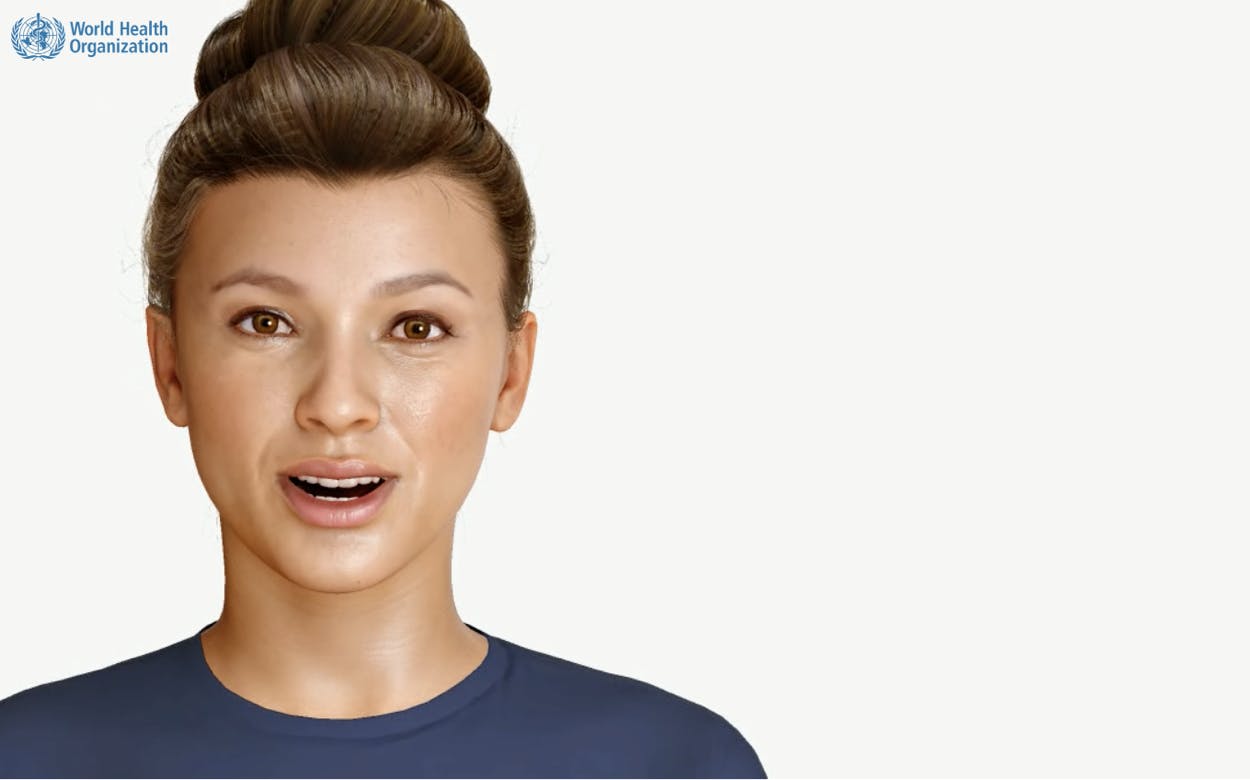Why this clumsy WHO health avatar has the potential to save lives

The World Health Organization has introduced an update to its AI-powered digital health assistant Florence.
The first version of Florence was presented in February last year. The update has now been unveiled in cooperation with Qatar's Ministry of Health at the World Innovation Summit for Health (WISH) in Qatar.
What are Florence’s areas of expertise?
Florence 1.0 was a specialist providing digital counseling services to those trying to quit smoking. Also with the update, the WHO focuses on the major and basic health problems of the world.
- Counseling services to those trying to quit tobacco and e-cigarettes
- Advice on mental health and tips to destress
- Guidance on how to eat right and be more active
- Information on COVID-19 vaccines and general public health messages
How to get an appointment?
Florence can be contacted at this website via computer or smartphone by any Internet user anywhere in the world.
So far, Florence only speaks English, but the WHO states that languages such as Arabic, French, Spanish, Chinese, Hindi, and Russian will soon follow.
What is our perspective on Florence?
We find the current version underwhelming but the general approach promising.
In recent weeks, we all had the opportunity to experience what is possible with artificial intelligence. The Dubai-based company published a completely artificially-generated conversation between Joe Rogan and Steve Jobs. OpenAI has unveiled the impressive AI-powered image-generating system DALL-E.
Against this backdrop, Florence honestly seems a bit clumsy and not very intelligent. The exchange feels less like a conversation and more like one of those annoying service hotlines. With other technical partners, more would certainly have been possible here.
However, the general approach is exciting and important—because people are still dying around the world simply because they don't have access to health information. The situation is particularly critical in Africa, which has 0.21 doctors for every 1,000 people. Africa has just 1.3% of the world’s healthcare workers, yet it bears 25% of the global disease burden.
A really good artificial health worker that provides people with the most important health information can save lives.
For this to happen, Florence must not only become easier to use, but also go where the people are. One likely inspiration is the cooperation between Akili and Roblox. The digital therapeutics (DTx) company announced that it will offer its ADHD treatment video game directly on the Roblox platform to reach young patients where they spend their time.
Why is Florence called Florence?
By the way, we have not found an explanation for why Florence is called Florence. But we think it's a reference to one of the most famous health workers in history: Florence Nightingale. And if you're interested, here are explanations for why the Big Tech players’ speech assistants are called what they are called: Alexa, Siri, Bixby.